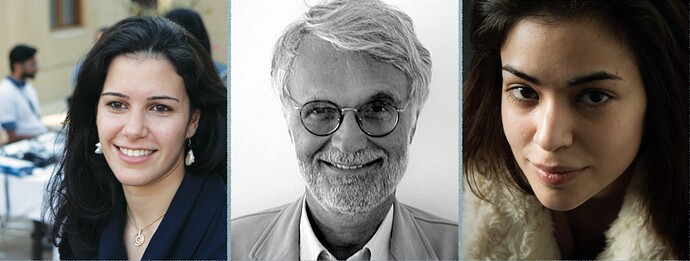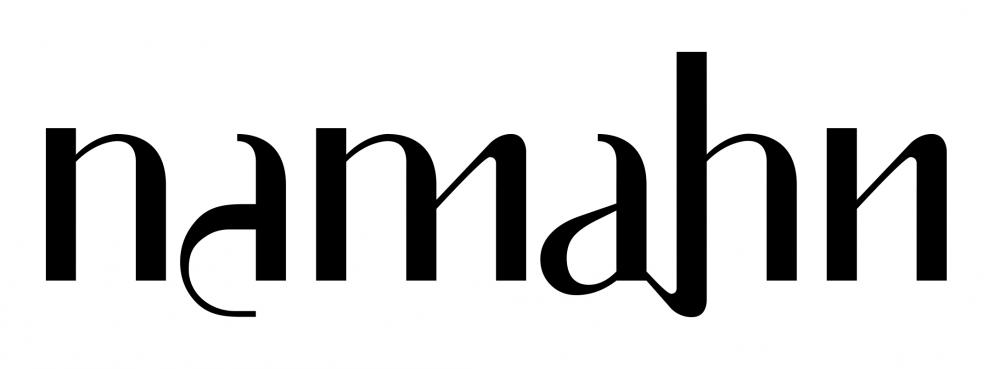| In collaboration with: |
|
- About
- Who should participate
- Aims
- When, where and how to participate
- Background notes
- Workshop structure
- Working groups brief
- Before the workshop
- References
- Team
- How to get a ticket
The migration issue is here to stay. Europe is the place-to-go for several millions of women and men. This will not change in the next decades. The challenge is to think about this not as a threat, but as an opportunity. That is, to imagine how migration can become a driver of innovation towards a younger, more dynamic, more cosmopolitan and, at the end of the day, more resilient Europe.
No one knows whether, and how, this positive perspective could become real. The only wise move to do is to consider this broad view, i.e. the possibility of a new cosmopolitan Europe, as a design-orienting scenario: a shared vision on the basis of which to experiment local solutions, to discuss them and to use them to feed a broad social learning process. And this is what we attempt here.
“Collaborative inclusion” is a reflexive design exercise to explore how collaboration between migrants and residents can strengthen the social fabric. More precisely, we look at what kinds of collaborative services (intended as result-oriented collaborations among different actors) can produce social, cultural, economic value.
Answering this question will lead us to another one: how to conceive and/or evaluate collaborative service capable to produce such multiple value? This reflexive design exercise adopts three simple evaluation criteria. A service is considered “better” when:
- Each migrant has more scope to express his/her ideas, and to choose what to do and how.
- He/she is active and uses better his/her sensitivity, skills and knowledge in the service.
- He/she produces more, better results for him/herself, for other migrants and for the whole resident community.
These three criteria, which come from design for social innovation experiences in different fields of application, are quite simple. We suspect that most services deployed in Europe to dealing with migration fail all three, quite spectacularly.
We only ask that participants do their best be critical, creative and committed. No specific information or competence on migration issue is required. We believe we all have firsthand experience at coming to terms with migration. Many of us are migrants (especially in Brussels!); the others are part of host communities. We are all citizen experts. Additionally, some of us have extra skills (design) or experiences (hosting newcomers in their homes). We specifically welcome:
- refugees or ex-refugees.
- people who can translate to and from Arabic.
- people who are involved in projects aimed at facilitating the welcome and insertion of migrants and refugees (example: there are many projects in the Techfugees project directory).
- designers.
We already have some participants in all these categories, but the more the better!
When, where and how to participate
Collaborative inclusion is part of the Living On The Edge 5 community gathering. It takes place on February 26th 2016 in Brussels, at SmartBE. To participate, click the “Attend” button on the top right if the page, then download the Notes for Participants and have a look at them before the event.
Background notes: designing for social innovation
Design question: given European problems and the way they are perceived in Europeans’ everyday life, how migrants can be part of these same problems solution? How can migrants and other resident actors collaborate to improve their quality of the life?
Hypothesis: In the complexity of the present society we can already find promising examples of migrants-residents collaboration: collaborative initiatives demonstrating how the search of migrants’ inclusion can be turned in a collaborative service, and therefore, in the exploration of new ways of living and working.
Methodology: The exercise is in two steps: (1) to consider and discuss a number of promising examples, and (2) to improve them and/or use them as triggers for brand new proposals.
Specificity: We build on our previous experience in design for social innovation, and aim to verify its usefulness in creating value for both the migrants and the whole society. This leads us to work in three main directions, that translate into three main criteria for the conception and evaluation of the services the group will come up with:
- User-centered approach (as precondition): solutions must consider each migrant as a free individual. That is, it must be based on his/her right and concrete possibility to express ideas, and choose what to do and how.
- Capability approach (as main design guideline): solutions must be based on migrants’ active participation. More precisely, they should enable them to use at best their sensitivity, skills and knowledge.
- Multiple-value production (as result to be achieved): solutions must achieve some practical and social results for all the involved actors (migrants and residents) and for society as a whole (in terms of physical and social commons improvement).
The aim of the workshop is not to invent new solutions (it will be impossible to do it in a serious way in this context) but to start form some existing promising practices, to imagine and present ideas and actions to amplify their potentialities.
Where:
- Promising practices are initiatives that are already operating in the collaborative inclusion spirit. That is, living examples of how collaboration between migrants and local communities can solve problems and generate values for all (the same migrants and the whole society).
- To amplify potentialities means to give promising practices visibility and support. That is, (1) to increase their possibility to be positively recognized by larger number of people (among both migrants and residents), and (2) to improve the (social, cultural, normative, technical, and economic) environment so that it could become easier for the given promising practices to consolidate and last in time, and for other similar initiatives to start and flourish.
Ideas and actions means everything can be conceived in terms of communication, services, places, events and performances that could give that specific practice, and its produced values more visibility and/or that could produce for that same practice, or for other similar ones, a more supportive environment
The workshop is organised in three moments:
- 10.00 Setting the scene and promising practices presentations
- 11.00 Group work (in 5 parallel groups) (including lunch)
- 15.00 Group presentations and discussion
- 16.00 End
A facilitator will help each working group for extra speed, fluidity and fun. Each group will work on one promising case study of a service for refugees and migrants. Given this, each group outline one or more ideas/actions to amplify its potentialities. The focus can be on:
- Visibility, to make the values a given promising practice (directly and indirectly) produces more visible and attractive.
- Support, to make its environment more favourable, for the same promising practice and for other similar ones.
Expected results for workgroups are:
- Each group conceive 2-3 ideas/actions and the communicative artefacts needed to present them. These ideas/actions must be motivated and presented indicating the main involved actors, outlining their organization and their technical and economic viability.
Activities of working groups activity will be divided into three phases:
Phase 1: Understanding and representing (the case, its actors and its values)
- Outlining the promising practice organization form, focusing on the values it produces (for the migrant and for the local community)
- Identifying the involved actors, focusing on migrants (and creating personas).
- Defining the related journey of experience, focusing on its main touch points
Phase 2: Generating ideas (on how to give visibility and support to the case)
- In-depth discussion of the produced values, focusing on their strengths and weakness.
- Generation of ideas (for example, each group member indicates an idea. These individual ideas are clustered in groups with similar meanings and discussed by the working group to find the first 2-3 better ones.
- Ideas consolidation, with the definition of: main involved actors, outlining their organization and their technical and economic viability.
Phase 3: Making visible (producing communicative artefacts to present the group results)
- Group members prepare the 2-3 ideas/actions presentation, considering the need of a very short, 5’ presentation.
Each participant is invited:
- to search for promising case and select, at least, one example that, in his/her view, is (totally or at least partly) coherent with the three previously indicated criteria of conception and evaluation.
- to write a short presentation of the selected example (name, place, main promoters, goals and values produced for the migrants and for the society), add a photo and edit the whole in an A4 format (only one sheet). Upload it in the website and bring a paper copy to the workshop venue.
Reading the references is not obligatory at all! But it may help you to get into the flow and enjoy it more.
Design&society:
- Ezio Manzini, Design when Everybody Designs”, MIT Press 2015
- John Thackara, How to Thrive in the Next Economy: Designing Tomorrow's World Today, Thames&Hudson Ltd, 2015
Migration&innovation:
- http://citiesofmigration.ca
- https://webgate.ec.europa.eu/socialinnovationeurope/it
- http://www.techfugees.com
Feel free to suggest more!
- Ezio Manzini. Designer, interested in social innovation and sustainability. Collaborates with the OpenCare project. More
- Yara Al Adib. Designer. Originally from Syria. More
- Gido Van Den Ende. Expert on the history of migration in Europe. Currently hosting refugees in his Dilbeek home. More
- Vishall Jankie. User experience- and service designer at Namahn. Passionate about human-centered design, travelling and surfing. More
- Stefanos Monastiridis. Professional interests in citizen participation, systems thinking and design for transformation. Also with Namahn. More
- Mousab Alshikh. Professional in the furniture industry & economic analysis, he fled the war in Syria to make a new life in Belgium. More
- Rand Abu Fakher. A student in music and sound engineering, she had to interrupt her studies due to the war. In Belgium, she returned to one of her favourite pastimes: designing jewellery. More
- Orwa Isaac. In his work, he would like to combine ideas from the West and the East. He wants to build a future in Belgium for himself and his family. “Hope and setting goals is the key to success.” More
- Virginia Tassinari. She has always been interested in connecting the world of philosophy and design. In her work at LUCA arts, Virginia mainly focuses in her projects, teaching and writing on the relationship between social innovation and philosophy, practice and theory. More
Contact alberto [at] edgeryders [dot] eu if you want to join the team.
Tickets for this event do not cost money, but you need to complete some small tasks. It’s easy!
-
If you don’t already have one, sign up for an edgeryders account here: http://bit.ly/1SKCYtZ
-
Leave a comment below to introduce yourself and let us know you want to come!
-
Someone will say hello and suggest some small tasks you should complete for a ticket!
-
When you finish the tasks, we will send you the ticket
-
Khalas! See you at the workshop

Date: 2016-02-26 10:00:00 - 2016-02-26 16:30:00, Europe/Brussels Time.


